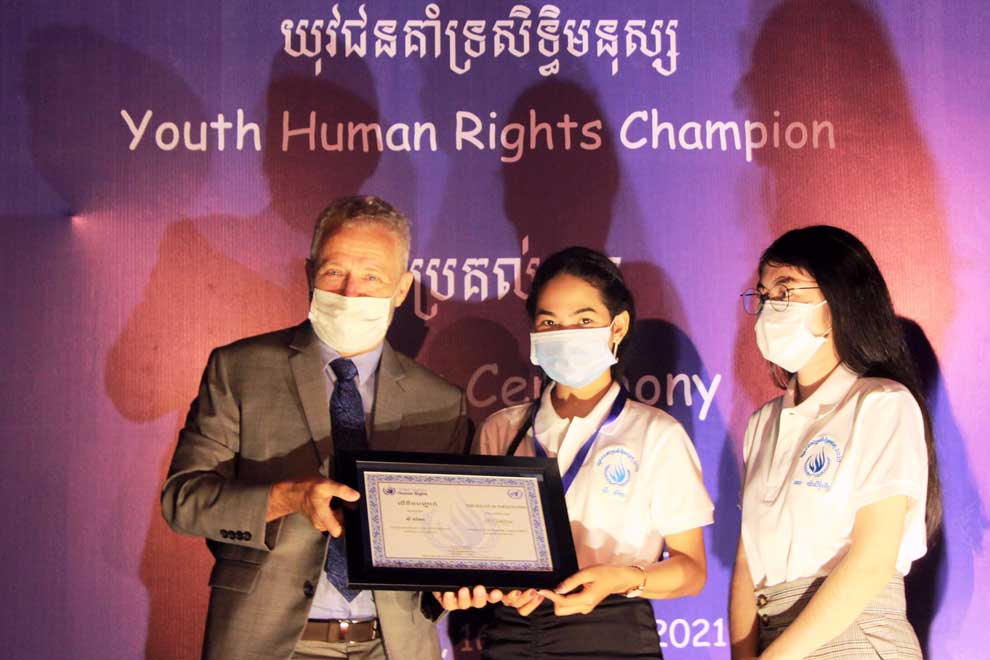
A contest participant receives an award for her contribution to advancing human rights. OHCHR
The Office of the UN High Commissioner for Human Rights (OHCHR) in Cambodia recognised six youth groups with Young Human Rights Champions 2020 awards for outstanding contributions to the promotion and protection of human rights and accountability.
Contest participants were taught about addressing human rights issues and trained in video production skills and then tasked with developing their own video content addressing specific human rights issues in the nation.
The six winning projects were submitted by groups comprising 27 individuals aged 15 to 23 that were selected from 18 nominated groups totalling 82 participants.
The competition was organised by several local NGOs working on youth issues in partnership with the embassies of Japan and Sweden.
The winning videos describe living free from discrimination, the duty of citizens to register to vote and cast ballots, the rights of young adults to choose their professions, representing people with disabilities in policy making, protecting the rights of migrant workers and the issue of discrimination against former prisoners.
The selections were shared on OHCHR’s social media channels.
Contest participant Sok Khim thanked the OHCHR and its partners for organising the event. He said the project inspired young people to participate in promoting human rights through expressing their individual opinions.
UN Human Rights deputy representative Claudia de La Fuente told The Post on January 18 that the OHCHR acknowledged the hard work and commitment of all youth candidates in the contest.
“We all feel inspired by their commitment and enthusiasm to promote and protect human rights in Cambodia. UN Human Rights Cambodia will continue developing youth projects to respond to the Cambodian youth’s interest to learn about and promote human rights issues that are relevant to all people in Cambodia,” she said.
Nobuo Mori, first secretary at the Japanese embassy, said during the ceremony on January 16 that he was very encouraged by watching all of the videos. He was impressed by the fact that young people were looking at various pertinent social issues and addressing them from fresh points of view.
“The social issues you have addressed are not unique to Cambodia but are occurring in every country, and the willingness of your generation to improve the situation is the key to making changes,” he said, adding that the accumulation of such small efforts would invariably become a foundation for the Kingdom to achieve further positive development in the future.
“As a long-time friend, Japan will play our role in supporting the democratic development of Cambodia,” he said.
Cambodian Human Rights Committee spokesman Chin Malin lauded the event as an opportunity for young people to learn practical skills like conducting research and reaching out to interview people connected to the topics they chose to address.
“It helps them to analyse and express their opinions on human rights issues based on scientific methods. It will help young people understand human rights and how they can exercise their rights under the law,” Malin said.




.jpg)














